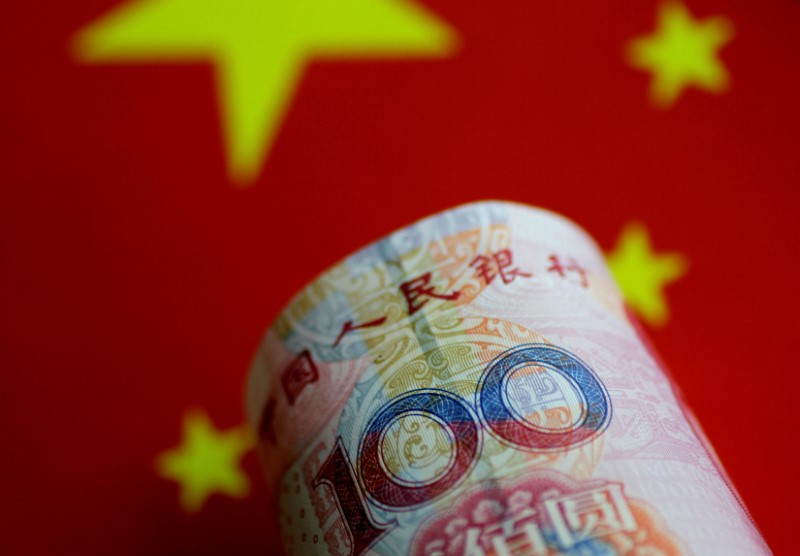SHANGHAI (Reuters) - Chinese shares slumped to fresh two-years lows on Thursday and were set for their worst monthly performance in years as trade tensions with the United States and worries about debt dimmed the outlook for China's economy.
Fears of a trade war also buffeted the yuan
The benchmark CSI300 Index (CSI300) and the Shanghai Composite Index (SSEC) both gave up weak midday gains, deepening the losses that pushed them into bear-market territory on Tuesday and Wednesday.
The Shanghai index was down 0.9 percent for the day and 10 percent in June, on track for its worst month since January 2016, when it tumbled 22 percent. The blue-chip index fell 1.1 percent on Thursday. For both, it was a four-straight losing day.
"In the short term, investor sentiment remains very pessimistic," said Lu Jie, head of research China at asset manager Robeco.
"The market is in the process of searching for the bottom," he said, expecting the market to stabilize in the second half.
The stumbling indexes once again highlighted the difficulties Chinese policymakers face in stabilizing markets amid a pivotal deleveraging campaign.
In the spot market, the yuan
In each of the past six days, the yuan has slid, taking it to its lowest levels since December 2017.
BIGGEST DROP SINCE 1994
The yuan has dropped more than 3 percent against the U.S. dollar June, more than in any other month since 1994 when China unified the market exchange rate.
Some analysts said the currency has farther to fall, given its continued strength against other emerging market currencies.
"I think there is no urgency for the PBOC to stop the yuan from weakening further, as the RMB index has still appreciated year to date" said Tommy Xie, an economist at OCBC in Singapore.
He said the People's Bank of China "is in the market to keep volatility in check, but not to change the direction of movement."
However, Xie added that excessive weakening could prompt the central bank to reintroduce its "counter-cyclical factor" in calculating the yuan's midpoint.
The bank introduced the factor last year in what it said was an attempt to better reflect supply and demand, and reduce possible market "herd effects". Traders said the mechanism helped reduce volatility.
Market volatility in China "is being driven by a combination of factors – Sino-U.S. trade tensions, concerns over corporate bond defaults in China and uncertainties to the growth outlook," Tai Hui, J.P. Morgan Asset Management's chief market strategist for Asia-Pacific, said in a note.
"Worries over corporate bond defaults are arguably the most dominant factor at this point, since the prospects of higher USD interest rates and subsequent USD strength are raising concerns that companies who have been heavy USD debt issuers could face challenges to service their debt, repay or refinance."
Chinese 10-year treasury futures for September delivery
The cost of insuring exposure to Chinese debt rose on Thursday to the highest in more than a year.
China's five-year credit default swaps (CDS) rose to 73 basis points (bps), the highest since early June 2017, and up 7 bps from Wednesday's close, data from IHS Markit showed.
The CDS have climbed 19 bps in the last 10 days.
A government think-tank report that appeared briefly online said that China should be wary of any financial panic stemming from uncertainties, such as bond defaults, tight liquidity and trade frictions with the United States.
